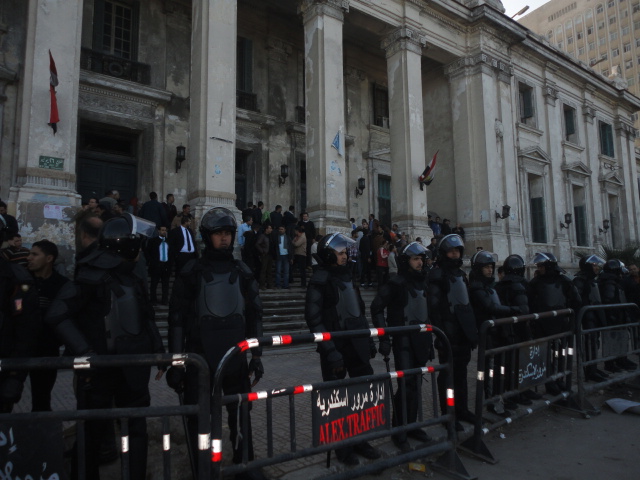By Chris Brummitt / AP
ISLAMABAD: Al-Qaeda has confirmed an American drone strike killed one of its commanders in Pakistan last month — a success in a CIA-led campaign that is a major source of tension stalling the relationship between Washington and Islamabad.
The death of Badr Mansoor in the strike along the border with Afghanistan is significant because he was believed to be behind many of the suicide attacks that have killed scores of Pakistani civilians in recent years. It could also be used by supporters of the campaign in Washington and Islamabad as an example of how drone attacks benefit both countries.
The US-based SITE monitoring service said on Friday that the confirmation of Mansoor’s death came in a video statement by Ahmad Farooq, Al-Qaeda’s head of media and preaching in Pakistan. The video has been released on an Internet jihadist forum.
Faced with strong public anger over the drone attacks, Pakistani officials publicly condemn them as unacceptable violations of sovereignty that boost support for extremism. But privately, the program has long had some level of official sanction and even cooperation.
Local Taliban fighters had previously said Mansoor was killed in the Feb. 9 strike but there was no confirmation from the US or Pakistan. A insurgent video eulogizing the dead is considered the most reliable way of knowing when a top commander has been killed.
In the nine-minute video, which featured photos of Mansoor alive and dead, Farooq accused Pakistan of collaborating with the strikes, emphasizing its apparent hypocrisy.
“America is now more eagerly attacking the Pakistani government’s targets,” he said. “The drone program is being run with the full consent, permission and cooperation of the Pakistani government.”
The strikes, which began in earnest in 2008, have killed scores of insurgents, including foreign Al-Qaeda members involved in plotting attacks on the West. Their frequency increased in 2010 and they hit insurgents widely seen as being proxies of the Pakistani army, causing friction in U.S-Pakistan ties.
Amid the tensions, the number of attacks dropped in 2011 and even more since November, when US aircraft mistakenly killed 24 Pakistani troops on the Afghan border. Pakistan blocked US supply routes into Afghanistan in protest and said it was renegotiating its ties with Washington as a result.
The issue of drone strikes — their frequency, targeting and whether Pakistan should be informed ahead of them — is key to ongoing, back-channel negotiations to restart that relationship, which is important for America’s hopes of withdrawing from Afghanistan.
Mansoor was said to have run a insurgent camp in North Waziristan region, an Al-Qaeda and Taliban stronghold where the Pakistani army doesn’t launch offensive operations, giving the insurgents a safe haven aside from the drone strikes.
Mansoor was from Pakistan’s largest province, Punjab, and moved to North Waziristan in 2008, where he led a faction of some 230 fighters, local insurgents have said. The enlistment of Punjabis in the Pakistani Taliban has been a serious concern for the government because it makes it easier for the insurgents to export violence from the border to the heart of the country.
Meanwhile, suspected insurgents on Friday attacked a vehicle carrying security forces in North Waziristan, killing seven troops, army and intelligence officials said.
The security forces returned fire, killing eight insurgents, the officials said, speaking on condition of anonymity because they were not authorized to talk to the media.
Associated Press writer Ishtiaq Mahsud contributed to this report from Dera Ismail Khan, Pakistan.
